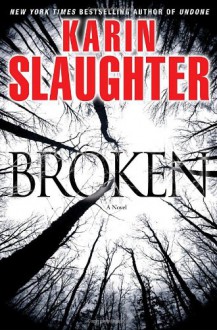With such tense novels as Blindsighted and Kisscut, Karin Slaughter has firmly positioned herself as one of the most capable exponents of the crime novel at work today – and certainly one of the most disturbing (a skill the author is clearly proud of). What's more, she ensures that each new book...
show more
With such tense novels as Blindsighted and Kisscut, Karin Slaughter has firmly positioned herself as one of the most capable exponents of the crime novel at work today – and certainly one of the most disturbing (a skill the author is clearly proud of). What's more, she ensures that each new book is subtly different from its predecessor, as her latest, Broken, demonstrates, with its innovative, edgy mix of tried and trusted elements. We are introduced once again to former Grant County medical examiner Sara Linton, proving that the Jacobean taste for bloodshed and mystery is alive and well in contemporary USA. A woman's corpse is discovered in the waters of Lake Grant, and a note is found which seems to point to suicide – but Sara Linton has never been a woman to settle for obvious solutions. The principal suspect in the case has requested – desperately -- to be able to speak to Sara -- but when she turns up at his cell in the local police station, the suspect, Tommy Braham (whom she had known as a boy), is unable to speak to her. Tommy is dead; he has been savagely beaten, and his wrists have been cut. Scrawled in blood on the cell wall is a poignant message: ‘Not me’. Sara, personally involved now, is distrustful of Lena Adams the detective in charge, so she gets in touch with the Georgia Bureau of Investigation and asks (as she has done before) for the help of Special Agent Will Trent (Karin Slaughter readers will be well aware of the intriguing relationship between these two). The duo begins to suspect that a murderer enjoys the covert protection of the close-mouthed inhabitants of Grant County, who have fashioned a skein of non-communication. But, as the Bard observed, murder will out...With so many writers tackling uncompromising material such as this (and Slaughter is nothing if not uncompromising), there is clearly a danger of over-familiarity for readers. But it’s a measure of the author’s skill that such notions are firmly banished, and Slaughter’s customary position at the top of the bestseller charts is well earned. --Barry Forshaw
show less

